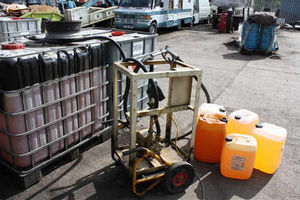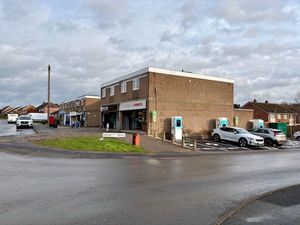Arrests after kerosene found in raid
Two people have been arrested on suspicion of selling kerosene — paraffin — as fuel for diesel cars and vans in the Black Country.

Two people have been arrested on suspicion of selling kerosene — paraffin — as fuel for diesel cars and vans in the Black Country.
Around 4,000 litres of kerosene was seized by customs officers during a raid at the Central Trading Estate in Dudley.
During the search, five diesel vehicles arrived on site and the drivers were stopped and questioned. Their vehicles were tested and found to be running illegally on kerosene and they were all seized.
HM Revenue & Customs arrested a man and a woman, in their early 30s,from Wall Heath who are suspected of evading excise duty of around £100,000 over the last 18 months.They have been bailed pending further enquires.
HMRC's assistant director of criminal investigation Adrian Farley said: "We will continue to disrupt the illegal use of kerosene and its illegal sale as diesel through high-profile operations such as this. We are keen to raise awareness of this form of criminality and where detected will look to impose tough penalties and pursue criminal prosecution when appropriate."
He added: "Motorists are warned of the dangers of using illegal fuels and may not be aware that using kerosene as a fuel is very harmful to diesel engines. It eventually destroys them due to higher burning temperature and lack of additives to protect motor engines."The raid took place at the trading estate on Thursday.
It is illegal to sell and supply kerosene alleging it to be diesel fuel for road legal vehicles. Kerosene is a heating fuel which attracts a zero duty rate. Diesel fuel attracts a duty rate of 58.95 pence per litre.
Dealers of Kerosene, which is intended for agricultural vehicles, have to be registered HM Revenue and Customs to make sure the oil is used legally.
Kerosene is widely used to power jet-engined aircraft and some rockets, but is also commonly used as a heating fuel.
Fuel being sold illegally costs the country hundreds of millions of pounds in lost revenue every year.




